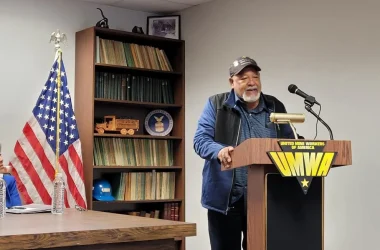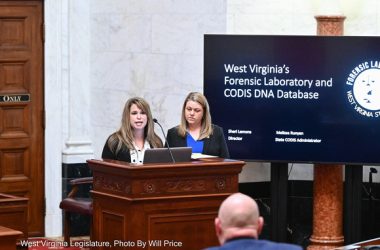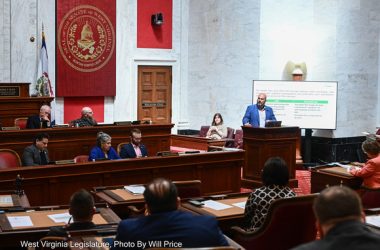By JOHN MARK SHAVER
The State Journal
FAIRMONT, W.Va. — While the state as a whole has taken an economic hit, presentations given at the 2017 North Central West Virginia Economic Outlook Conference showed an optimistic future for the region.
Wednesday’s conference saw representatives from West Virginia University, the state Department of Revenue, Home Builders Association of West Virginia and more gather at the Robert H. Mollohan Research Center to speak to an audience of area business professionals about the state of the region’s economy.
Chief among the presenters was WVU Bureau of Business and Economic Research Director John Deskins, who discussed the reasons for the state’s impaired economy, including the lack of industrial diversity.
Deskins also noted state residents’ increasing dependency on transfer payments, such as retirement, disability and welfare, for their income — and why that needs changed in the near future.
“West Virginia is becoming increasingly reliant on transfer income,” Deskins said. “It’s good that that transfer income is there because it helps people in need and helps provide a safety net and a cushion. It’s good that it’s there, but that heavy reliance doesn’t bode well for economic potential and economic growth.”
In terms of unemployment, WVU’s data suggest the state’s jobless rate is just above that of the national rate, but lower than in previous years.
However, Deskins said the unemployment rate isn’t nearly as important as the labor force participation rate, in which West Virginia has been dead last in the United States since 1976.
“How many people want to work in the first place, whether they are working or are just looking for work,” Deskins posed. “Even if you look at labor participation just for prime working age, just from 25 to 55, even if you look at ages 25 to 35, we are still dead last. Age is important, but it doesn’t matter how you slice and dice this data. West Virginia is facing a severe detriment in terms of labor participation.”
Deskins partially attributed the low labor force population — 53 percent of the state — to many of West Virginia’s able-bodied and able-minded workers leaving the state for greener pastures.
He also said that due to the population of those not in the labor force, businesses are hesitant to locate in West Virginia.
“The deficit that we face in West Virginia is driven by human capital issues,” Deskins said. “Poor education outcomes and poor health outcomes and this huge crisis of drug abuse. … We want to make our state attractive to potential businesses, but there’s no way a business is going to locate in a region unless it’s sure that it can find the workers that it needs.”
“I realize it is easier said than done, but I will tell you that the only real way to diversify our economy is through entrepreneurship,” Deskins said. “It’s not a short-term thing. It’s going to take decades, but if you need diversification, the only real way to achieve it is to create and foster and support a culture that is conducive and supportive of helping an entrepreneurial ecosystem.”
He said, over the next few years, North Central West Virginia will be a beacon of hope for the state and a leader in pushing West Virginia forward into economic greatness once again.
“We all know this region is perfectly suited to be the leader in creating more of an entrepreneurial West Virginia, and that’s one of the reasons I’m glad to be in North Central,” Deskins said.
Other presentations throughout the day included a nationwide economic outlook and how to strengthen small businesses and infrastructure in North Central West Virginia.
See more from The State Journal





